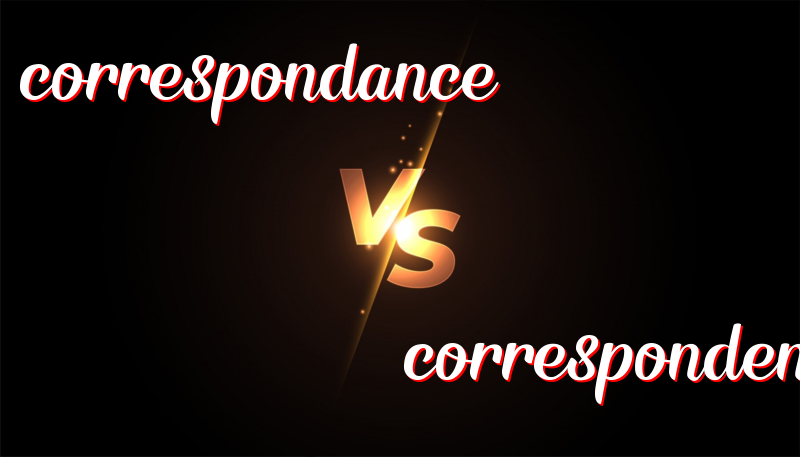Understanding the Difference Between Correspondance and Correspondence
Understanding Correspondance vs. Correspondence
Words in English can sometimes look very similar but have different meanings or uses. Two such words are “Correspondance” and “Correspondence”. Let’s explore what they mean, their history, and how to remember when to use each one.
History of the Words
The word “Correspondence” is an English word that has been used for a long time. It comes from the French word “correspondance” which is used in French but not in modern English. Over time, English adopted only “correspondence” while “correspondance” remained in French usage.
How to Use Them
“Correspondence” in English refers to written communication, like letters or emails, between people. It can also mean a similarity or connection between things.
“Correspondance” is not used in English. It’s often a spelling error where someone means to write “Correspondence”.
Trick to Remember the Difference
Think of the extra ‘e’ in “correspondence” as standing for “English”. That will help remind you that “correspondence” is the English word.
Examples of Using “Correspondence”
- She enjoyed reading the correspondence from her friend.
- The correspondence between the two countries was important.
- My father keeps all his correspondence in a box.
- There is a strong correspondence between exercise and health.
- I received correspondence from my bank today.
Examples of Using “Correspondance”
- Please check the spelling; you might mean “correspondence”.
- “Correspondance” is a French word, not used in English.
- Be careful not to confuse “correspondance” with “correspondence.”
- “Correspondance” is often a mistake when writing English.
- When using English, write “correspondence,” not “correspondance.”
Summary
To sum up, use “correspondence” for written communication or similarities in English. “Correspondance” is a common mistake and not actually an English word. Remember the trick with the letter ‘e’: “Correspondence” is for English.

Leave a Reply
You must be logged in to post a comment.